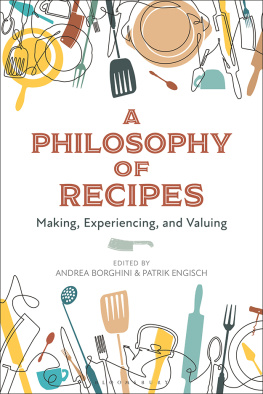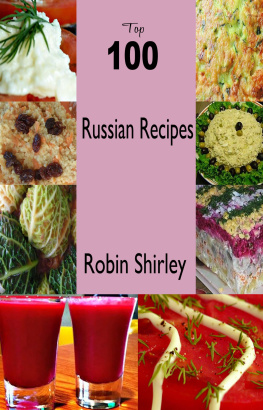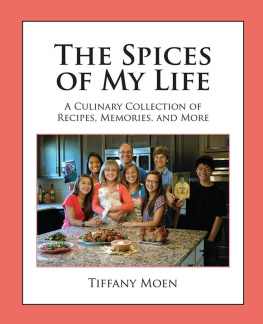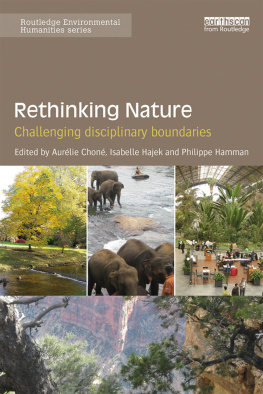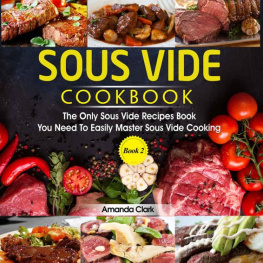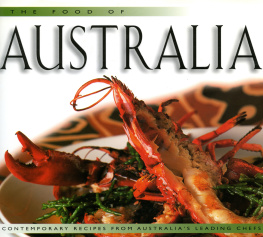A Philosophy of Recipes
Also Available from Bloomsbury
Making Taste Public, Edited by Carole Counihan and Susanne Hojlund
Proteins, Pathologies and Politics, Edited by David Gentilcore and Matthew Smith
Taste, Politics, and Identities in Mexican Food, Edited by Steffan Igor Ayora Diaz
A Philosophy of Recipes
Making, Experiencing, and Valuing
Edited by Andrea Borghini and Patrik Engisch

Contents
The idea of a volume on recipes and philosophy originated with the conference Framing Recipes: Identity, Relationships, Norms organized by Andrea Borghini and Francesca Mastrovito and held on December 4 and 5, 2018, at the University of Milan, Italy. We heartfully thank Francesca, the students who helped run the conference, the conference speakers, and all of the attendees for their insights. We also wish to thank Lily McMahon and the Bloomsbury editorial staff for believing in our project and following it patiently, professionally, and cordially. Thanks also to Sharon Casu for her help with the index. From Andrea, a special acknowledgment to Min and Lelio, for the courage and energy they provide on a daily basis. All the phases of production for this volume are deeply indebted to the social network of Culinary Mind: we wish to thank everyone who has actively taken part in it since 2017. This research was also funded by the Department of Philosophy Piero Martinetti of the University of Milan under the Project Department of Excellence 20182022 awarded by the Ministry of Education, University and Research (MIUR).
Andrea Borghini and Patrik Engisch
This collection of chapters engages with the philosophical exploration of a founding concept within culinary culturesrecipes. Along the way, other concepts take central stage too, including taste, representation, memory, and intellectual property rights.
Recipes and cookbooks have received significant attention in recent scholarship, and to date a reader finds several distinguished academic volumes demonstrating their cultural significance (an initial and non-exhaustive list includes Bower 1997; Theophano 2002; Floyd & Forster 2003; Elias 2017; Leong 2018). The present volume adds a missing and unexplored perspective, approaching the topic from a philosophical angle.
The collection distinguishes itself on three main counts from other volumes within the growing field of the philosophy of food (for a brief and updated overview of the field, see Borghini & Piras 2020a). First, its concern with the theoretical aspects, broadly understood, of the philosophical questions posed by food. Second, its focus on the philosophically underexplored notion of recipe and on a host of issues related to it. Third, its interdisciplinary perspective. We shall elaborate on each of these aspects below before offering a brief overview of the chapters contained in the volume.
The Role of (Theoretical) Philosophy in the Study of Food
Food, in the mode of production or consumption, is everywhere, all the time. Hence it is not surprising that it raises conceptual and value-laden issues that call for philosophical exploration. What makes researching this field of study particularly exciting is the many remarkable topics still awaiting examination. As strange as it may seem, until a few years ago the philosophers who pondered on the nature of recipes (Borghini 2015; Borghini & Piras 2020b) or the existential significance of hunger (Borghini 2017) could be counted on one hand. It is, thus, not unusual to run into some brilliant case study or a philosophically fruitful question.
Yet, how should the philosophy of food be approached? Analogous to the philosophy of medicine, the philosophy of physics, the philosophy of biology, and the philosophy of art, the philosophy of food studies issues that arise from the consideration in its specific domain of entities and practicesfood, eating, the edible environment, and their significance to the human condition. Furthermore, in line with these other philosophical sub disciplines, the philosophy of food offers a privileged angle for dealing with fundamental issues that pertain to its domain.
The array of topics that are potentially of interest to philosophers of food is wide (for a list, see Borghini & Piras 2020a). Some of them have already been singled out and are extensively discussed. These include the ethical commitments we have to other animals; the environmental impact of food production and consumption; and the place of food in an analysis of aesthetic experience. Other topics, however, have only recently come into focus or are still awaiting proper attention from philosophers. These include a series of theoretical questions concerning food: What is food? What is an ingredient? What are recipes? What is the relation between recipes and the dishes they help deliver? There are also questions pertaining to consumption: What is hunger? What is appetite? What should a solid scientific theory of metabolism look like?
These more theoretical questions are, essentially, conceptual ones. They lay the foundation for a philosophical analysis of the most basic concepts of the culinary domain and of the possible relations between these concepts. The goal of this volume is, thus, twofold: first, to offer a philosophical exploration of recipes from a theoretical perspective that can set an example for future studies and, second, to present chapters by non-philosophers that should stimulate further philosophical inquiry and that show the fruitfulness of a contamination between philosophy and other disciplines, at least when it comes to food.
Recipes and Philosophy
Why do recipes constitute a good entry point into the theoretical study of food for philosophers? Because recipes are the most central tool that mediate our relation to food. They represent and archive culinary cultures and, as such, have accrued over millennia a theoretical (on top of a practical) complexity that pertains to few other culinary concepts.
Recipes enjoy a special status in contemporary culture. First of all, they provide the forms that food consumption can take, inside and outside of the home. Menus at restaurants, cafes, and from street vendors consist of named dishes with a list of ingredients, functioning as proxies for recipes; within the kitchen, a chef has to be able to teach the staff how to cook items on a menu, and recipes are an invaluable tool for achieving this. Home cooking is no less based on recipes: when someone prepares food at home, they most often do so by following, modifying, or imagining a recipe.
Most communication about food also rests on an understanding of recipes. Dietary guidelines tend to be given or at least exemplified in terms of recipes. Food criticism relies on an understanding of how a recipe ought to be. Cookbooks form a major sector of the publishing industry. TV shows and the media treat recipes in a manner more and more akin to items of popular culture such as songs and movies. Recipes also deserve legal and cultural protection: those associated with so-called geographical indications (e.g., Champagne and Parmigiano cheese) are protected by intellectual property rights, and UNESCOs Intangible Cultural Heritage list now contains culinary cultures or gastronomical meals, which are arguably structured in terms of recipes.
Despite the increasing societal interest in scientific findings about nutrients and other abstract components of foods, to date recipes are not central to explaining the relevance of eating to human cultures, socio-political agency, trade relationships, personal identity, religious identity, and much more. The rise in societal value of food, thus, goes hand in hand with the increase in value accorded to recipes.
Next page
